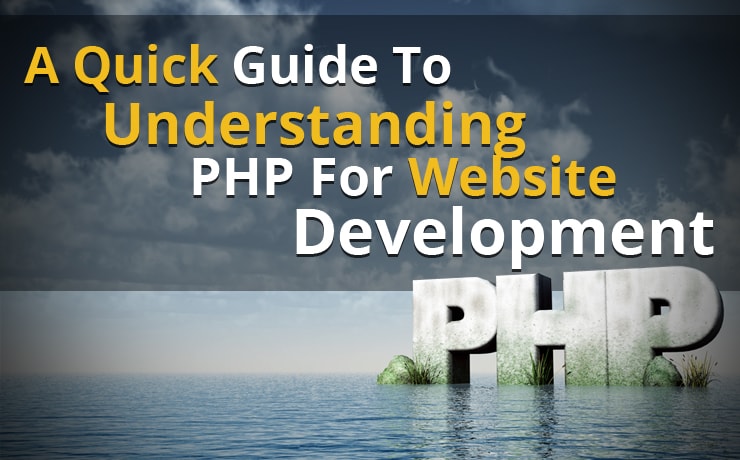A Quick Guide To Understanding PHP For Website Development

Chad Faith
Director of Content

If you are new to web design and development, you will come across a wide variety of acronyms such as HTTP, XML, SOAP, ASP, and more. The sheer volume of information on each of these acronyms can discourage an enthusiastic individual who is starting out as a programmer. Before you get worried, we have good news for you. It is possible to create cutting-edge website that’s stuffed with all the latest bells and whistles. It’s the one and only PHP!
PHP in a Nutshell
In today’s computer age, PHP holds a prominent position of being a server-side scripting language that’s open-source and fun to learn. It is extremely robust and scalable. Because PHP can be utilized for even the most demanding of applications, Facebook is one of the world’s tech giants to have made serious investments into it. In addition, PHP delivers excellent performance even at high loads and can be used in conjunction with web servers like Apache.
Here is quick look at how PHP works:
- The web server receives requests for PHP scripts
- Requests are handled by the PHP interpreter
- Results are returned to the web server, which transmit them to the client browser
A PHP script can perform a wide spectrum of tasks, including calculations, writing files, interacting with databases, processing user input, and more! Basically, the sky’s the limit when you use PHP and that phrase is truly fitting.
PHP isn’t Hard to Learn and Understand
Whatever your experience in programming is, you will find that PHP is an easy programming language to pick up – even if you are an absolute beginner! It does not require intensice study, and if you have basic experience, PHP will be easy works as the command functions describe exactly what they do and the syntaxes are logical. Because PHP was designed to make custom web development easier, over 75% of the top ten million websites utilize it.
PHP Offers Optimum Flexibility
PHP is a great programming language that provides a high level of flexibility and allows you to make alterations to your code at any time. It does not matter if you have just started the project, or just finished the project, you can make changes with easily without losing precious time. What’s more, your changes will not affect the way it will run or act at a later point of time.
PHP is also a dynamically-typed language and there are no stringent rules on how you can build features. In addition, you have more room to explore different options when solving problems. As PHP is forgiving when it comes to errors, you can still compile and run your program until it reaches the problematic part.
PHP is Dynamic and Fast
If you want to create dynamic websites, PHP is the language you should “speak.” PHP is widely used and highly sought after today, so with this programming language, you can bid static websites farewell as these sites so outdated in this age. Alos, PHP does not need additional memory space and will decrease the server’s workload as well as the time needed for the site to load.
 Free
Consultation
Free
Consultation Free
Google Ads Audit
Free
Google Ads Audit







